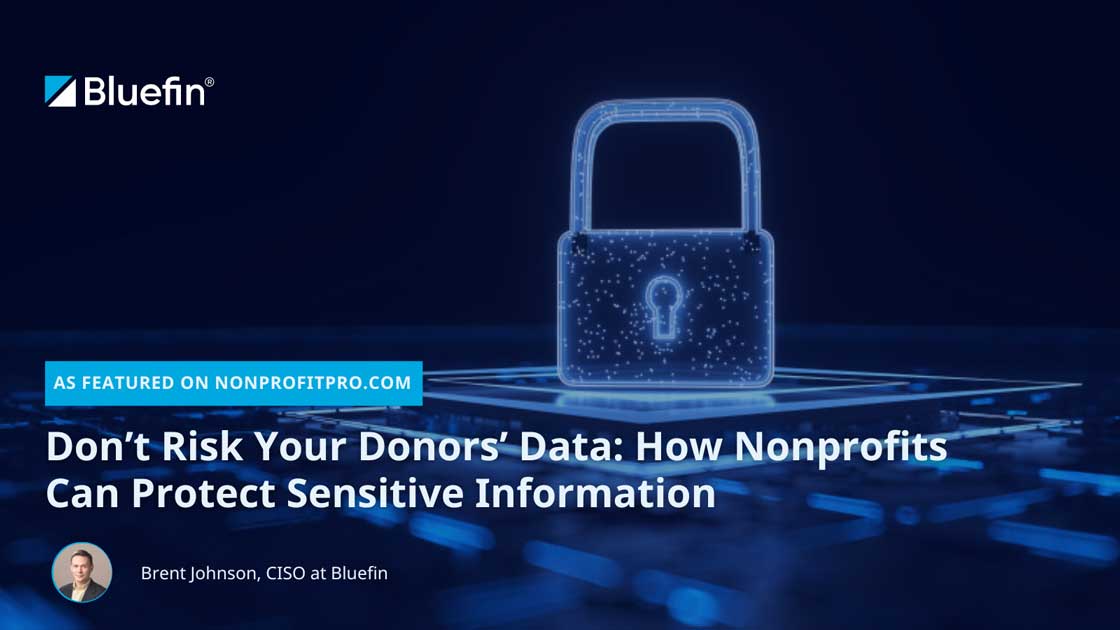Bluefin’s Chief Information Security Officer (CISO), Brent Johnson, recently talked with NonProfit Pro on the risks the nonprofit sector faces in today’s cyber security landscape.
Known for operating on tight budgets and limited resources, the primary focus for nonprofits is raising money for their cause. The importance of staffing their organization to secure sensitive data has not always been top of mind, but with the success of the nonprofit relying heavily on its donors – as well as the increase of cyber-attacks – it should be.
“Data breaches not only expose sensitive data around your clients, employees and donors, but they are extremely costly — to both your finances and your reputation. The average data breach costs $4.24 million due to response expenses, lost business and regulatory fines, according to IBM Security’s “Cost of a Data Breach Report 2021”. And studies show half to two-thirds of consumers lost trust in an organization following a breach,” explains Johnson.
Keeping data secure is vital to every nonprofit’s existence, but what are the best practices to mitigate fraud? Johnson stresses the importance of devaluating data by adopting technologies such as tokenization and encryption, which renders valuable data useless in the event hackers gain access to a network.
“As data breaches grow more common and costly, a strong data devaluation system should be standard practice for all nonprofits. In fact, encryption and tokenization should be considered mission-critical.”
Read Johnson’s full article here.








